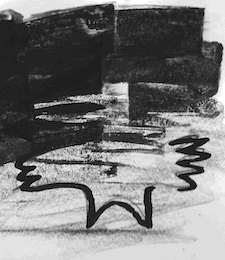Volume 1, Issue 4 (2022) Symposium on capitalism and (Putin's) war
What is the role of capitalism in the war between Russia and Ukraine? What can we learn about capitalism from this war?
This symposium originated in the discussion that followed presentations by two Russian dissident scholars – Artemy Magun and Greg Yudin -- at the annual gathering of the Radical Critical Theory Circle in Nisyros, Greece, in the summer of 2022. The debate was subsequently expanded among the broader membership of the Circle. We decided to publish some of the contributions as they canvas a versatile terrain of issues salient for radical critique: from the vagaries of post-communist capitalism to the relation between territorial sovereignty and socio-political emancipation, anti-imperialist resistance and the political opportunities the present conflict opens up for the left.
“This war is not so much a collision of two imperial powers (Russia and the U.S.) as it is a war waged by capital unchained,” writes Greg Yudin in his opening contribution. He discusses current-day Russia as the epitome of neoliberal capitalism, with the invasion of Ukraine enabled by a societal commonsense and a logic of rule marked by “the consistent prioritization of the economic over the political, through a technocratic-administrative manner of governing subjects who are thoroughly depoliticized by the utter uselessness of collective action”, and Putin craftily making strategic use of the masses’ scorn for politics. His attempt to forcefully appropriate Ukraine’s economic resources is only the extreme expression of the neoliberal creed that public authority is to enact economic processes, rather than leave this to the market or take care of the public welfare. Yudin concludes that the invasion of Ukraine is but the “opening phase of an existential war against the West, a war over resources and global hegemony.” Ukraine’s territorial sovereignty is the enabling condition for progressive politics in both Ukraine and Russia – “the only possible path to Russia’s own liberation from its neoliberal imperial rulers and its transformation into a progressive society that would cherish the real achievements of the Socialist revolution.”
In a similar vein, Artemy Magun addresses the factors in Russia that prepared a post-fascist transmutation of the Soviet regime, as he charts the “transformation of a tired, cynical society set on personal enrichment into a right-wing, personalistic and revanchist tyranny” – a process in which the neoliberal, ultra-capitalist ideology has served as a catalyst. In Russia, capitalism was administered in a context that maintained the worst features of late socialist society such as the de-politicization and atomization of the masses. The ethos of international relations itself became permeated by a notion of existential competition (endemic to capitalism) as the ideological clash of the Cold War was replaced by a ubiquitous endorsement of capitalism. This eventually engendered the “tyranny of a Bonapartist leader relying on militaristic elites and thriving on an aggressive chauvinistic ideology”.
The debate that the two papers generated (in commentaries by Paul Apostolidis, Albena Azmanova, Darin Barney, Gal Kirn, Paul Passavant, Enzo Rossi, and David Strecker and replies by Artemy Magun and Greg Yudin ), probed the sources of Putin’s authority within the political economy of post-Soviet capitalism, the potential for social and political transformation of Russian society, the idiosyncrasy of contemporary capitalism, strategies for building alternative power structures to capitalism, the position of the Western left on the war, and many other issues.
While we decided to offer Emancipations as an outlet for this symposium because the relation between capitalism and war, and between geopolitics and democracy, is likely to be of interest to the readers of the journal, the views expressed by the contributors do not represent the position of the members of the Editorial Board. We shall publish any rejoinders the readers might wish to send. Please send those to A.Azmanova@kent.ac.uk
Albena Azmanova and James Chamberlain, Editors
Responses to Articles
Rethinking Europe as a Peace Project
Gerard Delanty
Readers' Comments: Peace and Just War, Arms and Defense, Ideology and Ideology Critique. Frederiksberg, 10 March 2023
Asger Sørensen
Readers' Comments: The End of Disarmament? Making Sense of the German Debates (Rejoinder to A. Sørensen)
Gerhard Schweppenhaeuser
Commentaries
The Neoliberal Roots of Putin’s War
Greg Yudin
Capitalism and the Post-Socialist Road to Hell
Artemy Magun
Reply to Comments
Greg Yudin
Reply to Comments
Artemy Magun

About the Artist.
Adel Chereshnya, b. 1983, is an artist, graphic designer, museum exposition designer, who has lived in Saint-Petersburg, and New York. Her parents came from Odessa and Rivne. She graduated from the Stieglitz School of Applied Art (Saint-Petersburg). Chereshnya has participated in many exhibitions and festivals in Russia, Austria, and Montenegro. Her first personal exhibition “A Line for Oxygen” (2018) was dedicated to the patients of post-Soviet hospital during epidemic of viral pneumonia. Adel is also a graphic designer for the Radical Critical Theory Circle.

